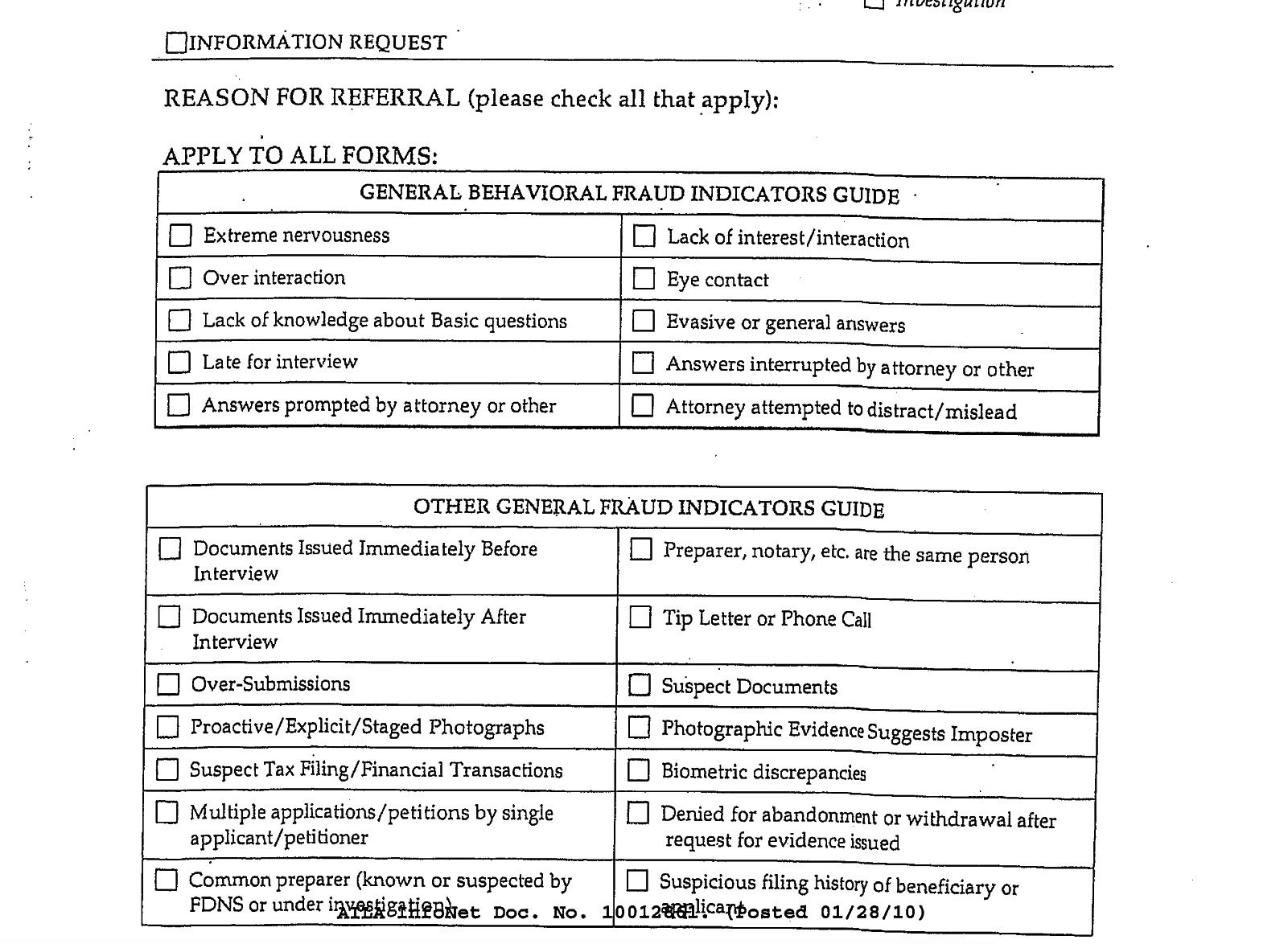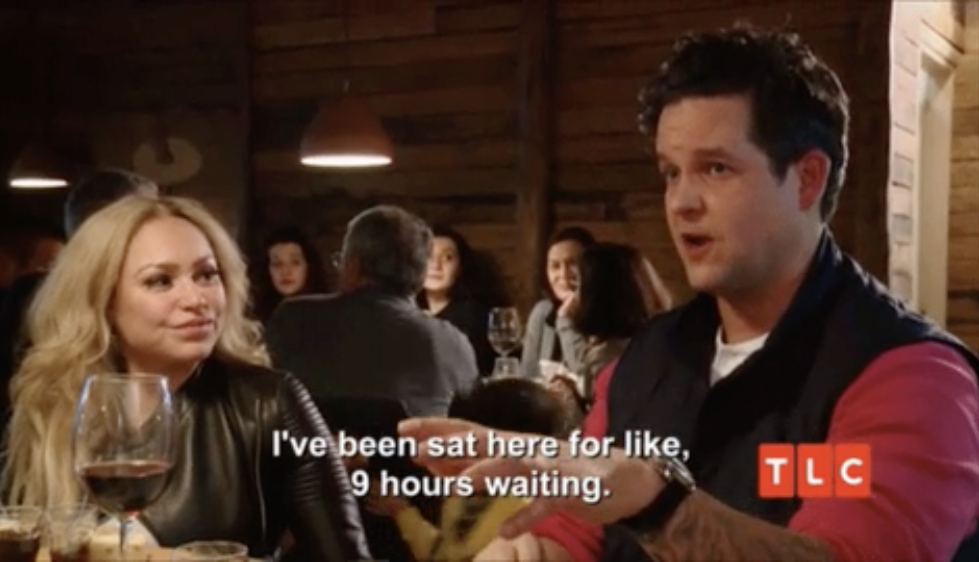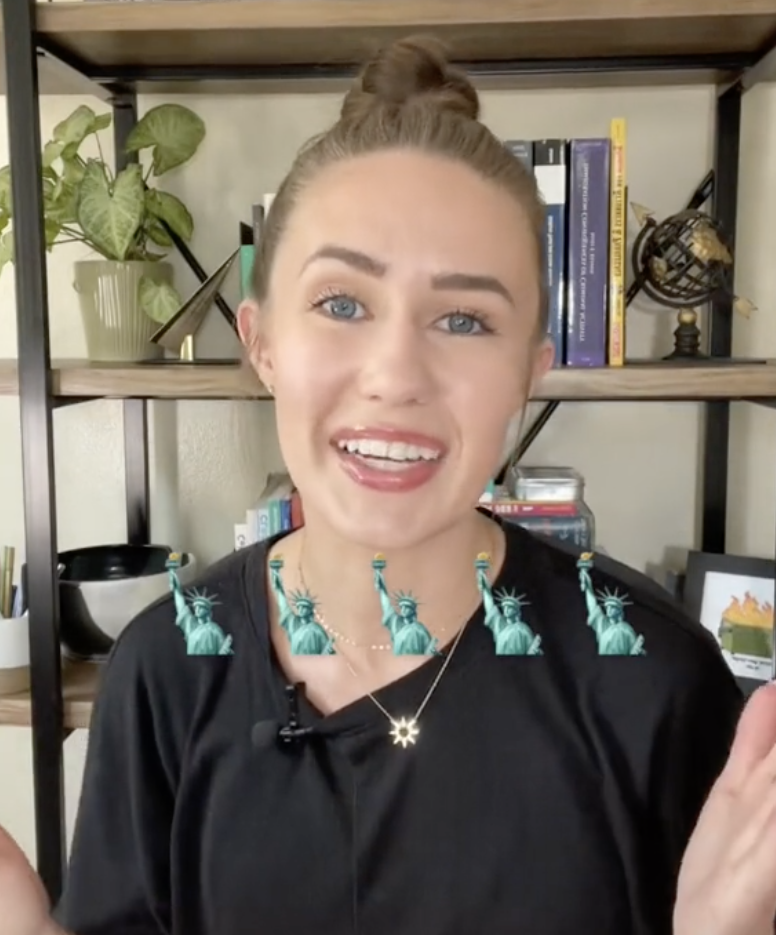Moving a foreign fiancé or spouse to the US permanently can be...complicated, to say the least.
To help simplify things, meet Alexandra George, a Chicago-based immigration attorney with four and a half years experience. Known as Alex The Attorney on TikTok, the 29-year-old has gained popularity by breaking down laws where marriage and immigration intersect.
"These are real reasons they can send your case to the fraud unit," Alex said in the opening of her "Red Flags" video, highlighting indicators on the official United States Citizenship and Immigration Services (USCIS) Fraud Referral Sheet that officers use when considering whether a marriage is false.

A few notable — and vague — rationales include:
Being late for the interview.

Lack of eye contact.

Having an unusual number of children.

And staged photographs.
"We need evidence of your whole relationship, so if you took all your photos on the same day? Red flag," she said, seeing the rationale behind this specific point.
Among the green flags included pet adoption papers because, as Alex joked, "you can accidentally have a baby together, but you can't accidentally adopt a dog."

When filing for a marriage-based green card for her own clients, Alex told BuzzFeed that she approaches the task knowing there are two fundamental truths she has to prove: "[First,] the marriage is legally valid, and [second,] the marriage is bona fide, which means that it’s real, and you really intend to build your lives together as a married couple. Part one is usually easy enough. Part two is a little less clear."
"When I tell clients how to prove they’re in a bona fide marriage, we talk about three pillars of evidence: shared residence — show that you live together as spouses, or that you will when you enter the US; shared expenses/finances — show that you make financial decisions together, pay bills for the same household, have joint accounts, etc; [and] shared relationships and experiences — show that you’re merging your lives by bringing your families (biological or chosen) together through photos of vacations you took together, family holidays, etc."

But this can be easier said than done. There is no "magical formula," Alex said, and indications of fraud listed on the (USCIS) Fraud Referral Sheet are vague, leaving much up to individual interpretation. "The indicators aren’t described in detail. There’s no points system," she said. "It all comes down to the officer’s discretion. So, the interview process and the ultimate outcome of that interview is up to the officer you get that day."
"My personal opinion is that many of the behaviors on this list can be attributed to nerves, cultural differences, disability, etc., and aren’t necessarily signs of fraud," she continued. "Sometimes, I feel like these cases are evaluated against a 1950s sitcom idea of what a 'normal' family looks like. I think the system leaves so many gaps for implicit bias to creep in. Just because someone’s relationship looks different to you doesn’t mean it’s not real."

Though application filers have no time to wait for the immigration system to catch up to today's ideas of marriage, they can at least lean on one another for help with getting through the process. Through Alex's account, commenters are able to pose questions, ask each other about their experiences, and wade through the legal terminology together.

"The US immigration system is notoriously opaque and confusing," Alex concluded. "There is very little transparency, and folks going through the process are looking for any insight they can get. ... People in my comments seem to benefit from sharing their experiences and seeing that they’re not alone."
TikTok videos not playing for you? You might need to change the settings on your device — here's how.
